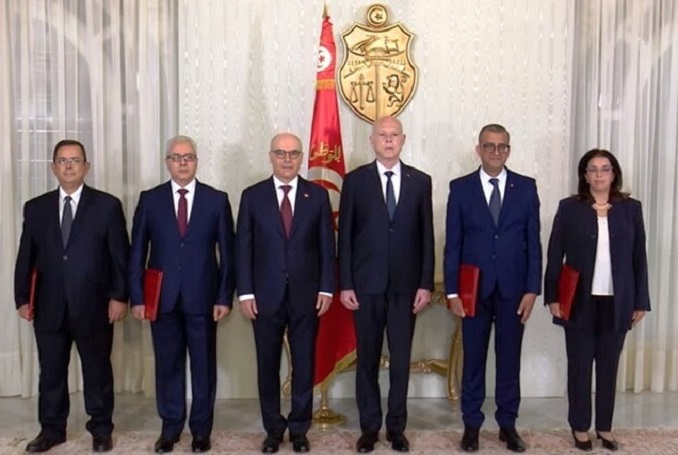NOVANEWS

A new campaign to reject the austerity policies of the ruling coalition
The announcement of the entry into force of some measures provided for by the finance law that has just been adopted by the Tunisian parliament with a reactionary majority triggered a wave of protest throughout the country.
Even before its presentation in parliament and when it was discussed behind closed doors in specialized committees, the Popular Front, which was constitutionally the chair of the Finance Committee, warned publicly against the anti-people measures it contained and had no purpose other than to place the burden of the crisis on the working classes. In November, through the massive distribution of leaflets and the holding of meetings and rallies throughout the country, the leaders of the Front alerted the workers and the poor about the difficult days ahead.
Throughout the month of December, during the debates on the new state budget, the Front’s parliamentary bloc was very enterprising, multiplying the interventions inside and outside the parliament to denounce it for fighting against the people. But this did not prevent the reactionary alliance in power from passing the new budget and the new finance law with a large majority on December 31, 2017.
The next day, the first price increases were announced. The Workers’ Party issued its first statement, considering that the government had just declared war on the people. And since then the positions opposing the new government measures follow one another. They emanated not only from the Popular Front and its various components, but also from a number of political parties and civil society organizations.
On the morning of January 3, the walls of the capital and the big cities were covered by the same slogan “What are we waiting for?” wrote hundreds of young people during the night, announcing the start of a protest campaign with the same name. During the day, the first youth gatherings were held simultaneously in several cities to explain the objectives of the campaign.
They explain that this campaign was decided by a revolutionary youth who lost all confidence in the authorities and in their pompous promises made during elections; and that if it comes right after the increase in the prices of basic materials, it is organized around broader demands:
<> – a reduction in commodity prices,
– social and health coverage for the unemployed,
– increased subsidies for needy families,
– the immediate hiring of at least one member of each of these families and the provision of social housing for the poor,
– the development of a national anti-corruption plan,
– the cessation of the privatization of public institutions,
– the development of a fairer tax policy,
and in the immediate future, the suspension of the application of the new finance law until an alternative is found that would take into account the interests of the working classes.
As soon as it was launched, the campaign was favorably received by growing numbers of young and old. Today it is gaining momentum and attracting new social categories, namely all those who feel aggrieved not only by the latest governmental measures, but by all the anti-popular policies that have been carried out by successive governments for seven years, in favor of a comprador bourgeoisie whose only objective is to put an end to the revolutionary process that began in 2011.
But what is further fueling the protest is the reaction of the authorities who responded with police violence alone in the hope of killing the movement in the bud. In the suburbs of the capital, night attacks have been organized against police stations, against riot patrols, but also against department stores and bank branches. The clashes even caused the death of a young man hit by a police vehicle in the city of Tébourba (western suburbs of the capital). More than a thousand young people have been arrested and a series of trials is being prepared.
The Workers’ Party and the Popular Front have not hidden their support for this protest movement; on the contrary, their leaders have multiplied calls to the people to take to the street and speak out against the neoliberal policy led by the ruling coalition that wants to bring alone the consequences of the chaotic business management of the country. The demonstration organized by the Popular Front on January 14 in the center of the capital gathered a few thousand citizens; other forces took part, including activists of the campaign “what are we waiting for?” Similar movements have been organized in the main cities of the country (Sousse, Sfax, Gafsa, Sidi Bouzid, Kasserine, Bizerte, etc., 16 cities in total, north and south).
A campaign of demonization of the Front and its leaders is being organized through the media in the pay of the government (as in the good old days). In the sermons of Friday, January 12, in the five thousand mosques scattered throughout the country, the order was given to “imams” to denounce the Popular Front and consider it a troublemaker; some remarks were close to incitement to crime. The answer was not long in coming. The local workers’ party in the village of Aroussa (north west of the country), the birthplace of Hamma Hammami, was burned down the same evening.
In return, a broad coalition of political and social forces has emerged around the popular front and has set itself the immediate goal of suspending the application of the finance law, with a view to revising it. If that succeeds, it will mark the end of this government, and the beginning of a new stage of struggle.



